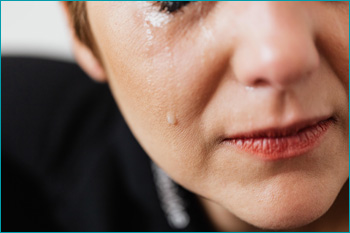" Great stuff ! Just wanted to let you know I recently
read your blog and found it
really interesting, thanks! " - Emily T.
End With Care Blog

What You Need to Know About Anticipatory Grief
Posted on May 3, 2022
 When we think of grief, we often think of death. But the truth is that grief is our natural, emotional and physical response to any loss, at any time in our life – such as the loss of a job, a relationship, or with a change in your health status. Grief is not only experienced after a loss but is often felt in advance of a loss. This is called Anticipatory Grief.
When we think of grief, we often think of death. But the truth is that grief is our natural, emotional and physical response to any loss, at any time in our life – such as the loss of a job, a relationship, or with a change in your health status. Grief is not only experienced after a loss but is often felt in advance of a loss. This is called Anticipatory Grief.
What is Anticipatory Grief?
Anticipatory grief is the distress people feel in the days, weeks, months, years before a...
Read more
An Introduction to the Death Positivity Movement
Posted on April 5, 2022
Our Death Denying Culture
 Although we realize that death will come to us all, it is something that most would just rather not think about. For many, the idea of talking about death is just plain morbid or provokes such anxiety that it is a subject to be avoided. But the past two years of the Covid pandemic and its heart-breaking death toll has become a very real reminder of our humanity. Perhaps it has also become an opportunity to reflect on our mortality. Allowing ourselves to think about and talk about this too often ...
Although we realize that death will come to us all, it is something that most would just rather not think about. For many, the idea of talking about death is just plain morbid or provokes such anxiety that it is a subject to be avoided. But the past two years of the Covid pandemic and its heart-breaking death toll has become a very real reminder of our humanity. Perhaps it has also become an opportunity to reflect on our mortality. Allowing ourselves to think about and talk about this too often ...
Read more
Tips for Communicating with Someone with Dementia
Posted on February 7, 2022
 Caring for a loved one with dementia can present communication challenges that at times can feel overwhelming for the individual, as well as for family or other caregivers. Commonly associated with Alzheimer’s disease, dementia is a general term that describes the deterioration in cognitive function. Most notably, it involves memory loss, thinking and reasoning, language skills, and other social abilities. With the rising numbers of people with dementia in the US, partly due ...
Caring for a loved one with dementia can present communication challenges that at times can feel overwhelming for the individual, as well as for family or other caregivers. Commonly associated with Alzheimer’s disease, dementia is a general term that describes the deterioration in cognitive function. Most notably, it involves memory loss, thinking and reasoning, language skills, and other social abilities. With the rising numbers of people with dementia in the US, partly due ...
Read more
Considering the Choice to Die at Home
Posted on November 7, 2021
 Literally for centuries in the US, end of life care was usually given by families, loved ones, or others in the community. For most Americans, death and dying happened at home.
Literally for centuries in the US, end of life care was usually given by families, loved ones, or others in the community. For most Americans, death and dying happened at home.
But starting in the 1960s and 70s, what once was the most common place to die, gave way to a variety of other options. Advances in medical care coupled with more hospitals providing intensive care facilities, the rise in residential nursing facilities, and the beginnings of hospice care, led not only to changes in how we die, but also where we die. Instead of dying at home, people approached the final s...
Read more


